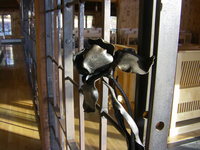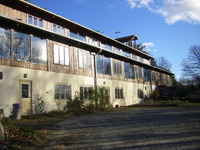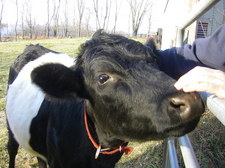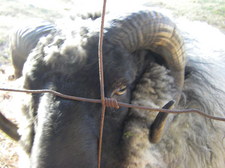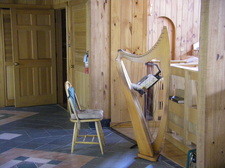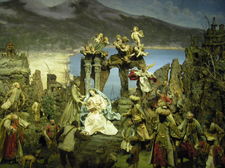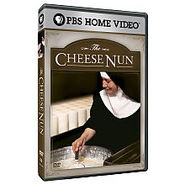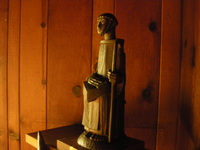 The Abbey of Regina Laudis is a special place in Connecticut; and one of the special Benedictine monasteries in the USA. I’ve been spending more time there in recent months either attending the Divine Office and/or Mass or spending a few days in St Joseph’s Guest House (for men, there are guests for women, married folks, & clergy).
The Abbey of Regina Laudis is a special place in Connecticut; and one of the special Benedictine monasteries in the USA. I’ve been spending more time there in recent months either attending the Divine Office and/or Mass or spending a few days in St Joseph’s Guest House (for men, there are guests for women, married folks, & clergy).
One thing I learn going to monasteries or other types of religious houses is the wide variety of people who come for a brief visit to the gift shop and chapel to those visiting for professional reasons and those who are there to spend a few days making a retreat, bugging out of the “world” for a respite or those like me who just love monasteries, nuns and the culture. This past weekend we had Jesuit seminarians and a man from North Carolina connecting with distant family who happens to be a nun.
Being among the guests you see the monastic life unfold in profound and simple ways. The profound is exemplified in thinking about contours of the nuns and a couple of laymen considering making a monastic foundation of brothers and priests at the abbey. And there were the simple ways of spending time with one of the Oblate brothers who was Holy Apostles Seminary, or another Oblate brother preparing for his diaconate ordination on Saturday. And your own learning discerning a new of living what the Lord has given. So much at Regina Laudis is rooted in the prayer and work of the land. Being a land preserve, the nuns care for the land in extraordinary ways like farming, caring for the natural way supplies, raising much of their own food, etc.

Want to know more about the Abbey of Regina Laudis and the monastic culture found there? Come for a visit, spend a few days at the abbey and/or read Antoinette Bosco’s Mother Benedict (and read Bosco’s essay on the book).
Antoinette Bosco, a resident of Connecticut, journalist and friend of the nuns, wrote an accessible and inspiring account of the abbey’s founder, Mother Benedict Duss, OSB (+October 5, 2005). Mother Benedict was forward thinking and a pioneering nun who founded an abbey of nuns who take seriously prayer, work, culture and humanity. Bosco’s narrative tells the story of a woman who risked everything, was obedient to the Church, and trusted profoundly in God.
The abbey is home to a nun who bears a tired clichè –but all clichès are shopworn– of “the cheese nun,” who went back to school at a later age for further education which landed her a stellar PhD in microbiology that has enabled her to make brilliant contributions in the field of making cheese and promoting culture the world over. A Fullbright scholar, Mother Noella never thought that entering a monastery would lead to studying science, milking a cow, making artisanal cheese, travel extensively. Except that in all these things she followed the aphorism, that in all things God is gloried.
So, watch the 2006 PBS presentation “The Cheese Nun” telling the story of Mother Noella Marcellino learning the ways of God and humanity through the exacting study of science, cheese-making and prayer all in an effort to know the grace of creation given by God: biodiversity reveals the ever beautiful face of the Creator.
Other Communio blog posts on Regina Laudis: the Crèche, various pics, the Benedictine approach to holiness, on a visit in August, and a story on Mother Dolores Hart.
